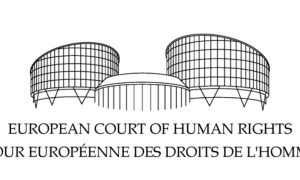When Northwest, Ohio, resident Malagros Maldonado would read in English, she had to translate the words in her head to get the meaning. “But you can’t translate feelings,” she said.

She was overjoyed when the Jehovah’s Witnesses’ New World Translation of the Holy Scriptures in Spanish was released in 2019. “Instead of trying to figure out words,” she said, “I feel like I can just open the Bible and start a conversation with God. It’s like he’s talking to me in my language. I know the meaning of what he is telling me, what he requires of me and how he views me.”
Maldonado resonated joy as she reflected, “I don’t have to rely on anyone to tell me what God wants. I can grasp it in my own language and learn how to be close to him.”
Expressing further appreciation, she said, “It’s also easier to share with others. When it’s not in the language of your heart, it’s hard to communicate about it.”
While perhaps best known for their public ministry, Jehovah’s Witnesses have pioneered the work of Bible translation and translating Bible-based literature for decades. For example, their official website jw.org is available in more than 1,065 languages, making it the internet’s most translated site. However, the organization’s most complex translation effort has been the Holy Bible, which has been translated into some 238 languages as of mid-2022.One of the recent Bible translations released was in Bislama, a pidgin language from the remote Pacific island nation of Vanuatu, native to only about 10,000 people.
“Producing Bible translations in so many languages involves an enormous amount of time and resources,” said Robert Hendriks, U.S. spokesperson for the organization. “We provide these translations free of charge because our goal is for everyone on the planet to have an easy-to-understand translation of Scripture that reaches their heart in their mother tongue.”
In recent years, the Witnesses established more than 400 translation offices worldwide — facilities where volunteer translators live and work in areas where the language is widely spoken.
Translation of the Bible cannot be done through artificial intelligence. “Most of us who use a translation app realize its limitations,” said Hendriks. “This effort needs to be spearheaded by dedicated people who speak the language and live among people who speak it as their primary language. This accounts for why our translations are among the best available anywhere.”
In March 2022, Jehovah’s Witnesses announced the release of the New World Translation of the Holy Scriptures in the S’gaw Karen language.
Hsa Taw, who immigrated to Omaha, Nebraska, in 2016, after spending years in a refugee camp on the Thailand-Myanmar border, learned to speak fluent Burmese in school. Still, she says, S’gaw Karen is her mother language. Taw said she and fellow Karen speakers in her community — still unable to find a reliable dictionary in their native language — were thrilled to receive the scholarly New World Translation in S’gaw Karen.
“The way we felt — I don’t know how to describe it,” she said. “We were so happy.”
Taw has seen her volunteer Bible ministry change for the better in the months since the translation’s release. “When I tried to explain the Bible to others in Burmese, it wasn’t the same,” she said. “But when we read it in Karen, we’ve got it.”
Sweeter still, said Taw, is her deepened friendship with God. “Because I have the Bible in my language, I know God is kind and impartial to all nations and ethnic groups,” she said. “He has not forgotten us.”
For more information about Jehovah’s Witnesses’ translation activities, their history and beliefs, visit their official website, jw.org, with content available in more than 1,000 languages.





